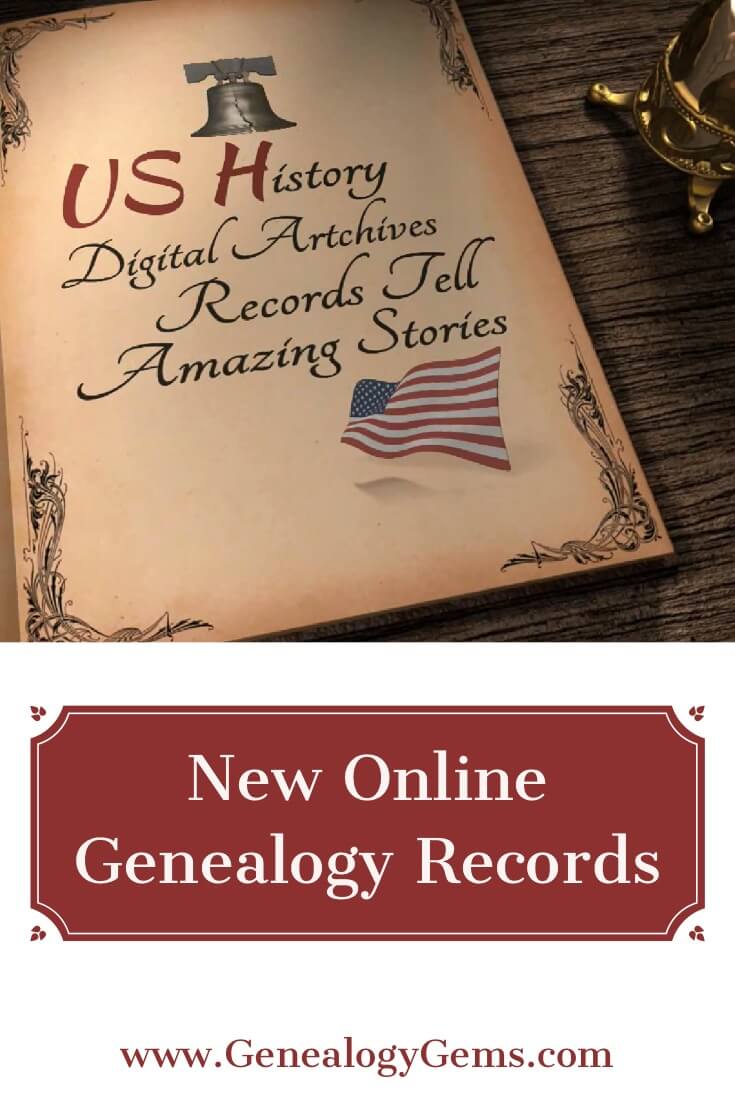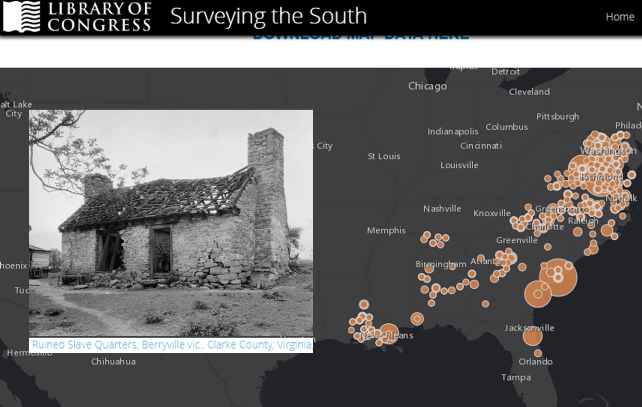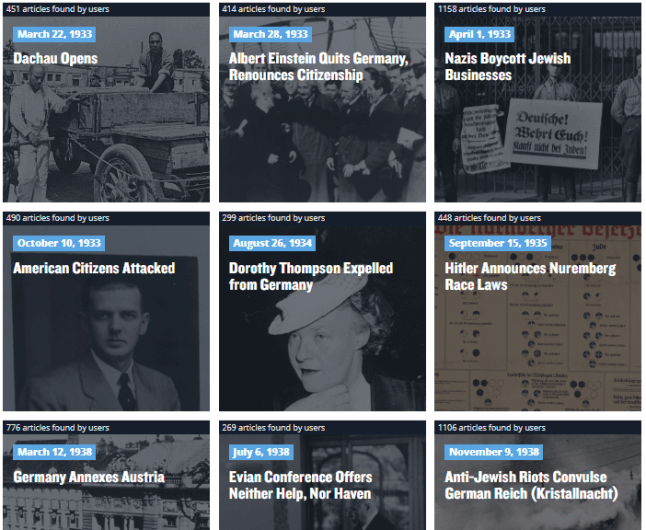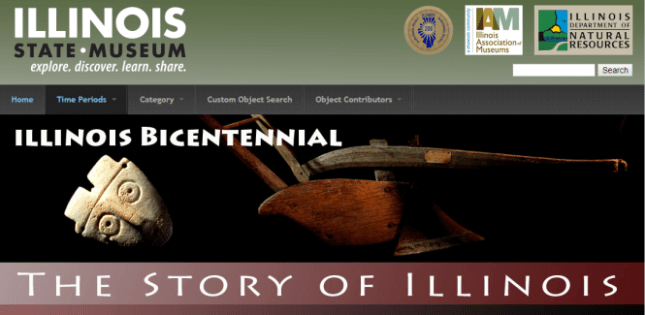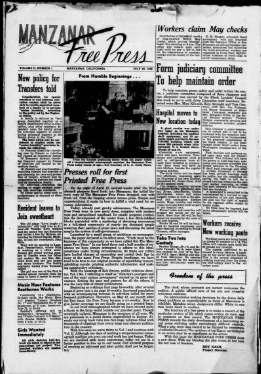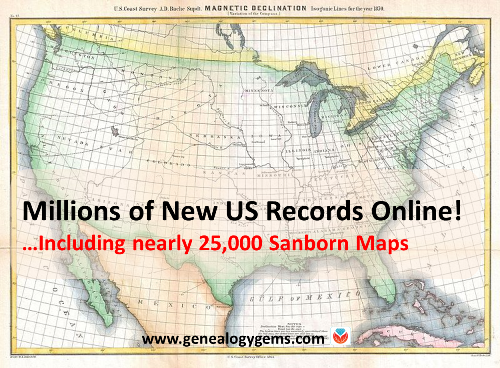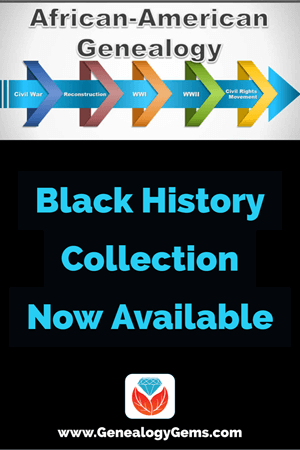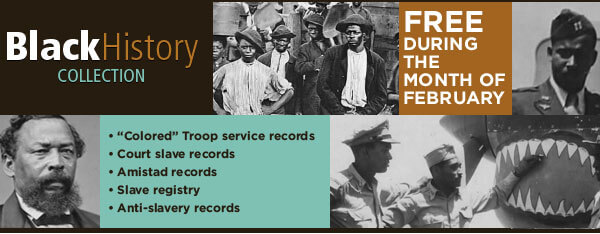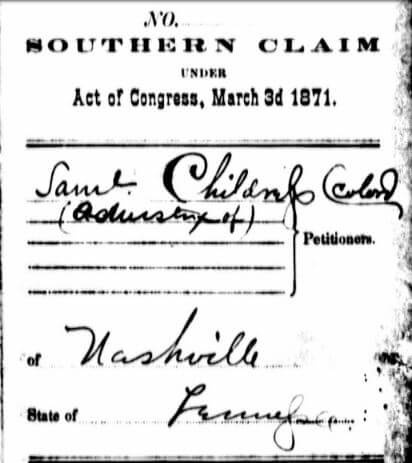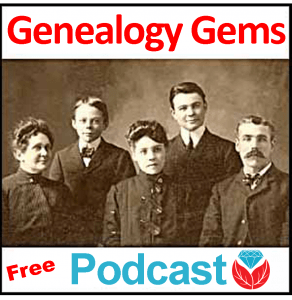New Records at US History Digital Archives Tell Amazing Stories
Record collections and digital archives of US history reveal fascinating stories from our collective past. Here we report on resources relating to the US Colored Troops in the Civil War, old Southern architecture, higher education in Virginia, Southern burial grounds, the south side of Chicago, the history of Illinois, and WWII Japanese internment camps. What might any of these reveal about your family history?
Coming soon: U.S. Colored Troops Database
Usually, we wait to report about new online record projects until they are actually online. But we can’t wait to share this good news about records of the U.S. Colored Troops (African American soldiers who served in the Civil War). According to an NYU news release, researchers are “transcribing the contents of thousands of personnel and pension records from the Civil War, which also include marriages, children, and residencies, among other data, that are gradually forming the African American Civil War Soldiers database.” That database will eventually be housed at the African American Civil War Museum website.
US history digital archives you should know about
Southern architecture: Surveying the South
The Library of Congress has created a new series called Story Maps, which “combine text, images, multimedia, and interactive maps [from their collections] to create engaging online narrative experiences,” according to a recent announcement.
One of the first Story Maps to be created is Surveying the South, based on about 7000 photographs taken in the 1930s of “exteriors and interiors of houses, mills, and churches as well as mansions, plantations, and outbuildings” in Virginia, Maryland, North Carolina, South Carolina, Georgia, Alabama and Louisiana, Florida, Mississippi, and West Virginia. According to the site, “Domestic dwellings are the most frequently represented structures, ranging from farmhouses and slave quarters to elegant mansions and houses, including abandoned buildings and ruins.” But there are also “city halls, courthouses, schools, churches, and cemeteries…law offices, mills, stores, and taverns.” If locations associated with your family history are part of this Story Map, it could be an incredible resource for you.
Virginia yearbooks
The Archives at the Library of Virginia announced recently, “We have been able to digitize and provide access to 2,308 yearbooks [from around the state] published though 1977, the year that copyright law impacts use. So far, 35 local libraries have contributed their yearbooks, with more in process. There is no set end date for this project; it will continue as long as…funding supports it and there are willing participants.” Click here to explore The Library of Virginia’s digitized yearbook collection (sorted by the public libraries that have contributed their copies).
Southern burial grounds
This isn’t a new collection, but it’s been moved, so it’s a nice opportunity to make you aware of it. The Tennessee State Library and Archives announced the following on its Facebook page: “The Richard C. Finch Folk Graves Digital Photograph Collection is now on [The Tennessee Virtual Archive] TeVA (formerly on the Library and Archives’ Flickr). Dr. Finch has visited hundreds of cemeteries in Tennessee, Alabama, Kentucky, Arkansas, North Carolina, Louisiana and Texas photographing covered graves. His main focus has been on comb graves, so called because architecturally, the slabs of stone make a roof or comb over a grave. Click here to learn more about comb graves and the project.
Holocaust News in US Newspapers
We have reported in the past on History Unfolded, a project by the United States Holocaust Museum that collects local U.S. newspaper coverage in the 1930s and 1940s of Holocaust-related events in an effort to better understand what American readers knew about Nazi Germany. The Dallas News reports, “With the help of hundreds of students and dedicated volunteers, the museum built an extensive online archive of American newspaper coverage of key Holocaust events, including more than 12,000 articles from every U.S. state.” Click here to search the growing archive of newspaper stories or to help find more stories in local newspapers.
Home Movies and Oral Histories: Chicago’s South Side
The rich and famous aren’t the only ones who created home movies in the past. The University of Chicago has launched a new online digital archive chronicling everyday life on the South Side of Chicago in the 20th century. “The new South Side Home Movie Project Digital Archive is a globally accessible online portal to home movies shot by residents of Chicago’s South Side neighborhoods from 1929-1982,” says a university announcement.
The archive “showcases home movies organized into easily navigable categories: by the family that contributed their films; by subject matter, ranging across topics like fashion and birthdays to graduations, road trips, and the Bud Billiken Parade; year of production [and] filming location, including local landmarks like Buckingham Fountain….Oral histories recorded by family members describing their home movies are also available as companion works to the films. The archive continues to accept old home movies and encourages viewers to “to add tags and comments to help with identifying places, people, and events in the footage as participants in a collective historical project.” Click here to explore this digital archive.
Story of Illinois
The state of Illinois is celebrating its bicentennial soon, and has launched a new website to celebration. Story of Illinois is hosted by the Illinois State Museum and “features objects from the museum’s Illinois Legacy Collection as well as collections from other museums across the state that celebrate Illinois heritage,” reports the WAND 17 news website. Visitors to the free digital archive can explore the virtual exhibit by several time periods, from colonial to territorial times to early statehood, the Civil War, the industrializing age and history since 1917.
WWII Japanese internment camps
Another Story Map created by the Library of Congress is “Behind Barbed Wire,” an interactive exhibit offering “a unique glimpse into the daily lives of Japanese-Americans in internment camps during WWII through the digitized collection of internment camp newspapers at the Library of Congress.” Here, you’ll follow the story of about 120,000 U.S. residents of Japanese descent who were forcibly removed from their homes and located first in temporary assembly centers and then in permanent internment camps.
At the heart of this collection are more than 4,600 English- and Japanese-language newspaper issues published in 13 camps by the residents themselves. According to the site, “Camp newspapers kept residents informed, relaying administrative announcements, orders, events, vital statistics, news from other camps, and other tidbits concerning daily camp life. They published not only straight news, but also editorials, opinions, human-interest stories, and entertainment pieces such as sports news, literary works, and comic strips. They recorded the daily activities of residents for whom, even in detention, life still continued on.”
Discover these US history digital archives, too
Irish-American, African American military service and more for OH, KS, WA, MT, FL

About the Author: Sunny Morton
Sunny is a Contributing Editor at Lisa Louise Cooke’s Genealogy Gems; her voice is often heard on the Genealogy Gems Podcast and Premium Podcasts. She’s known for her expertise on the world’s biggest family history websites (she’s the author of Genealogy Giants: Comparing the 4 Major Websites); writing personal and family histories (she also wrote Story of My Life: A Workbook for Preserving Your Legacy); and sharing her favorite reads for the Genealogy Gems Book Club.

